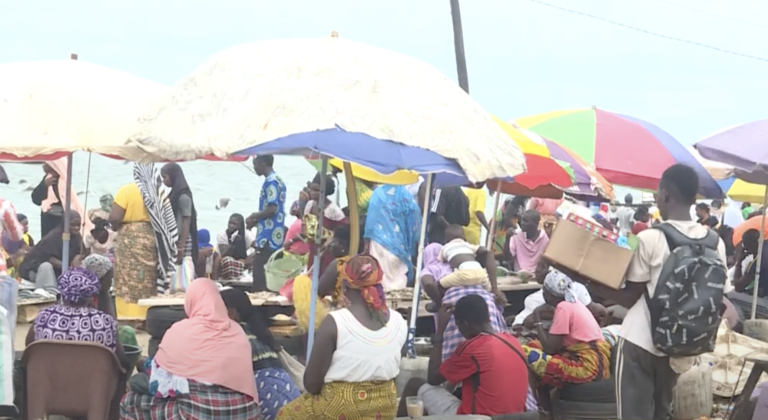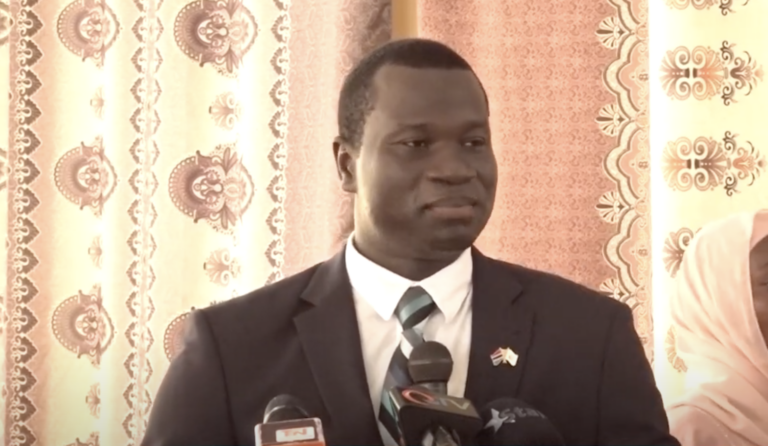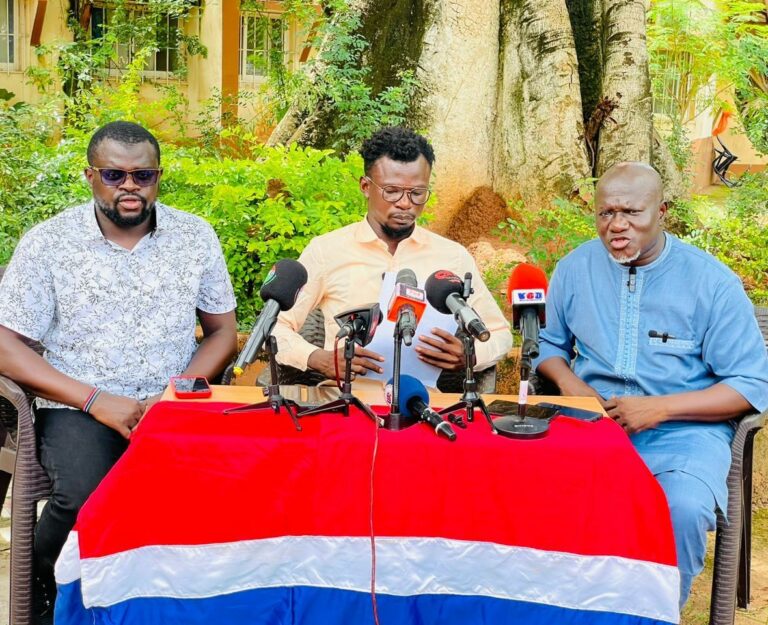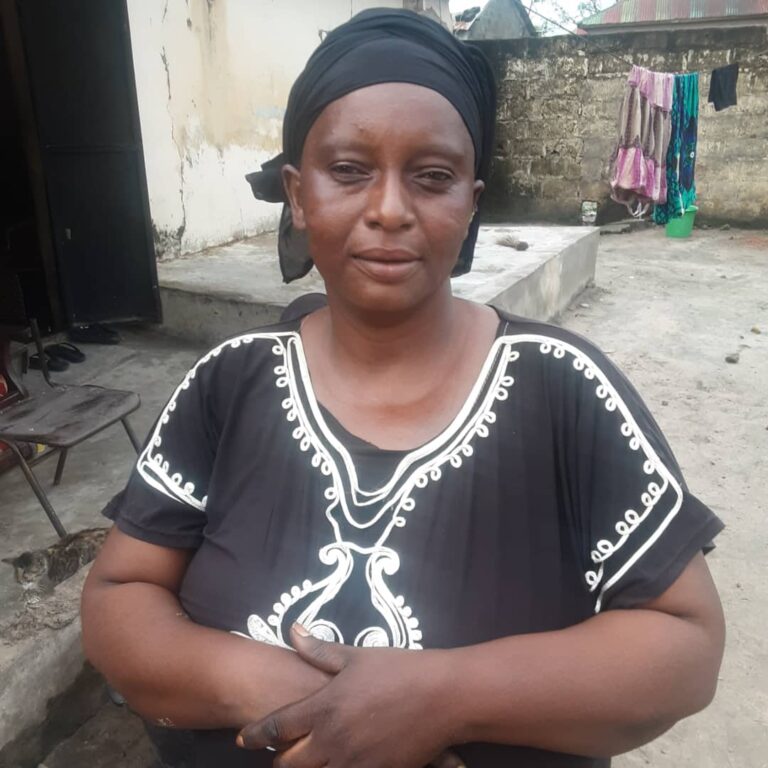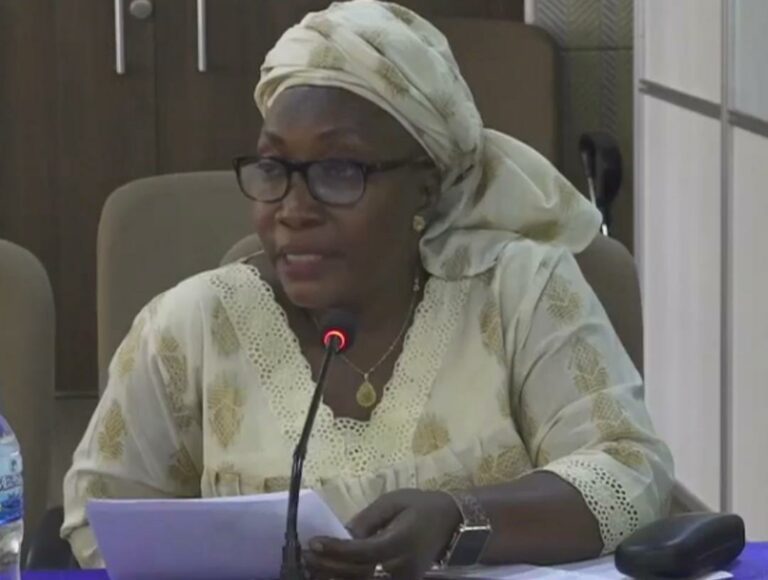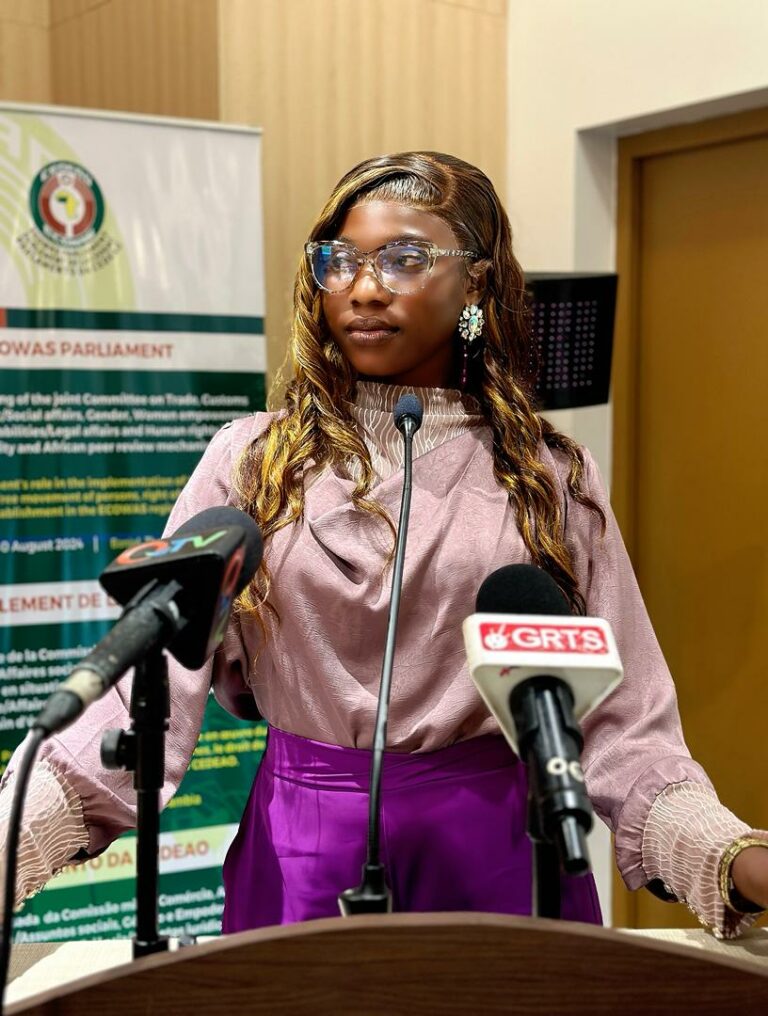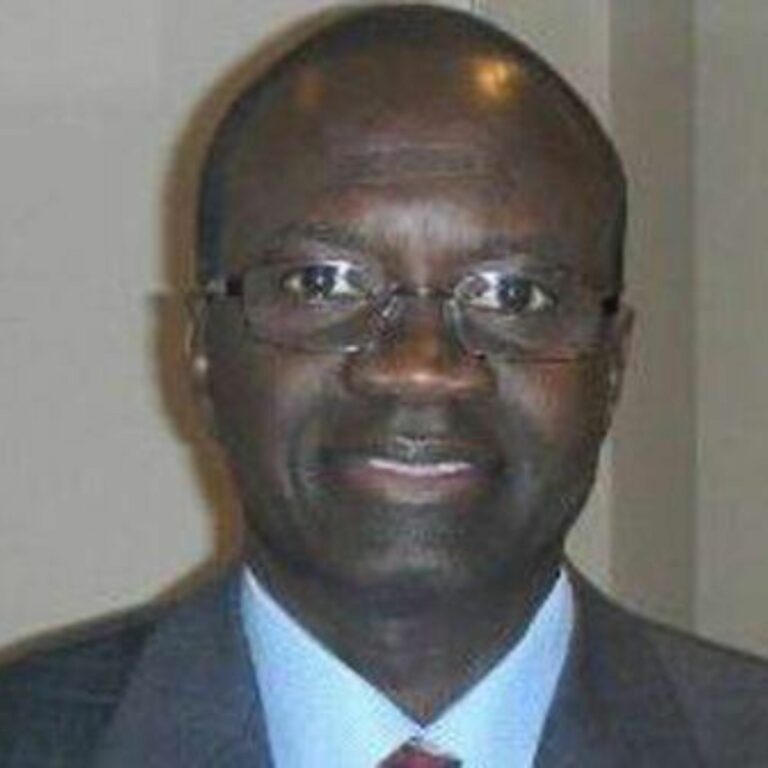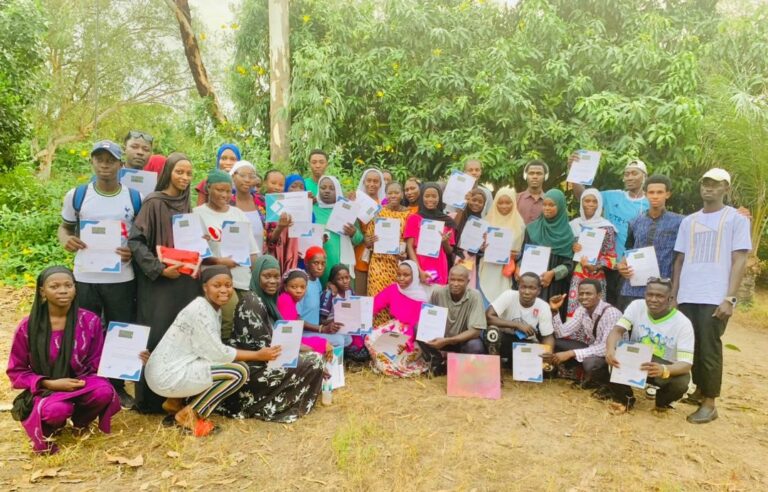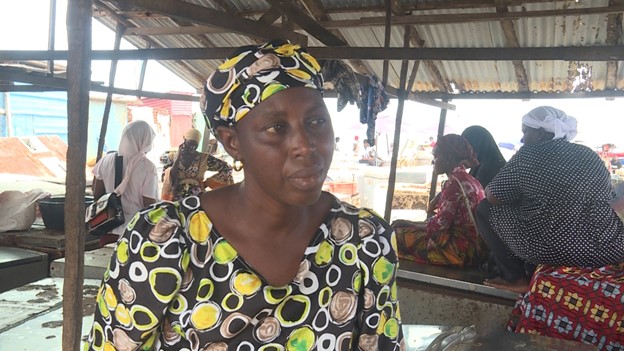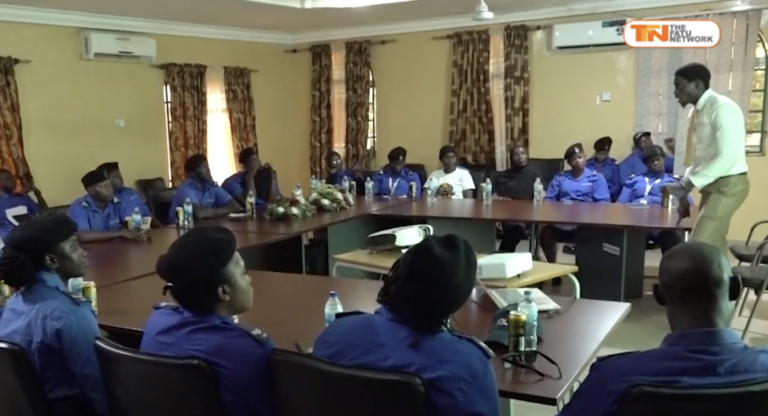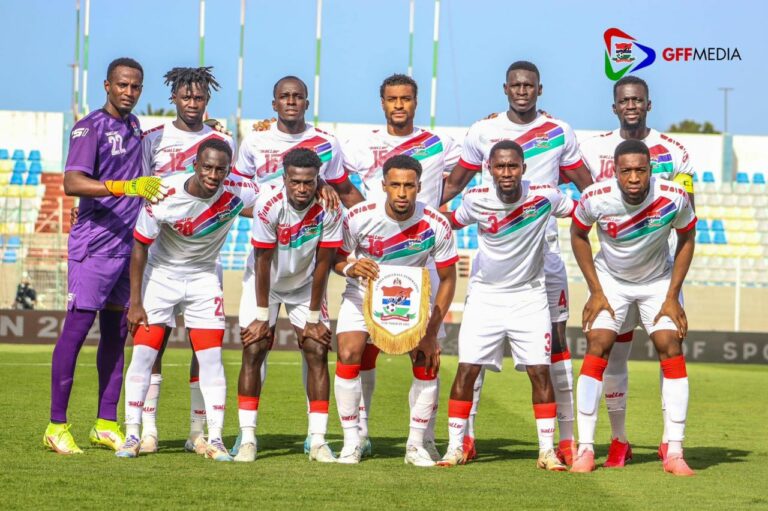Tanji Fish Landing Site: Fishmongers and Authorities Voice Concerns Over Rising Challenges
Tanji Fish Landing Site: Fishmongers and Authorities Voice Concerns Over Rising Challenges
Police PRO: ‘Salaries are a challenge for everybody’
By Alieu Jallow
ASP Modou Musa Sissawo, the Public Relations Officer of the Gambia Police Force, has expressed concerns regarding the police salaries, labelling it a “challenge for everybody”.
The GPF’s men and women are tasked with the duty of safeguarding citizens, fighting crime, and ensuring the prevalence of justice. Nonetheless, their unwavering dedication seems to be undermined by insufficient wages, leading to discontent and unprofessional conduct, including the solicitation of bribes from both citizens and foreigners.
In light of these issues, the Police PRO remarked that being governed by the Public Service Commission presents significant challenges to their salary structure.
“Salaries are a challenge for everybody, which is the elephant in the house. The challenge with that [is] the Gambia Police Force is under the Gambia government, and we don’t have our [own] pay scale. So, it is like when the government increases the salaries, our salary also increases,” Sisawo said.
The police spokesperson emphasized their work on the Police Draft Bill, aimed at addressing the challenges faced by the Police Force and other aspects intended to strengthen the police department. PRO Sissawo also refuted claims that inadequate salaries drive their officers to accept bribes.
“Bribery usually is about the attitude of the person. It is not about salaries because many people are accused of bribery and corruption who receives 10 times more than the average salary of a police officer on the street who is alleged to have accepted bribes”.
Numerous police officers face financial difficulties and struggle to support their families because of their insufficient salaries. This issue particularly impacts junior officers, many of whom find it challenging to afford essentials like food, housing, and their children’s education.
ASP Sissawo emphasized that police should never accept bribes, as they are conscious of the salary that comes with their job. Nonetheless, ASP Sissawo acknowledged that with the substantial rise in the cost and standard of living, there is a pressing need for a salary increment.
“Looking at standards of living, things have changed in this country and there is a great need for salaries to be reviewed or adjusted for the Gambia Police Force. We are engaging the leaders, and they are aware. Hopefully, we will see at the strategic level as we are only at the operational level of government because we want to see how they can encourage our officers to serve in a very respectable, committed and deserving way of the public,” he said.
The problem of inadequate remuneration within the GPF is a significant concern that numerous officers have lamented. Despite risking their lives daily to enforce the law and safeguard citizens, many feel their dedication and sacrifices remain unrecognized, even as they face verbal and physical assaults from the very people they protect.
NYSS Welcomes 15th Batch of 200 Participants to Two-Year National Skills Training Program
NYSS Welcomes 15th Batch of 200 Participants to Two-Year National Skills Training Program
Activists Call for Public Disclosure of State Land Allocation Beneficiaries
By: Dawda Baldeh
A group of three individuals, led by prominent human rights activist Madi Jobarteh, has submitted a petition to the National Assembly Public Petition Committee, seeking the establishment of a commission to inquire into the allocation of state lands to state and non-state officials, including individuals, organizations, and businesses, between 19th January 2017 and 31st December 2023.
The petitioners are Baboucarr Nyang, Omar Camara, and Madi Jobarteh.
They want the Assembly to list the names of all beneficiaries of the state lands.
According to the petitioners, their petition is in response to public concerns regarding allegations of impropriety, unfairness, and inappropriate and illegal allocation of state land by the Executive.
The petitioners believe the petition relates to a matter of public concern and interest and is within the National Assembly’s supervisory powers to ensure accountability in all state institutions, particularly in the functioning of the Executive.
Below is a summary of the demands made by the petitioners.
5. This petition specifically refers to the following officials:
- The President
- The Vice President
- Cabinet Ministers
- National Assembly Members
- Senior officials in ministries, departments, and agencies
- Judicial officers
- Private companies and businesspersons
- Private citizens/individuals
- State institutions
- Non-state institutions or organizations
PRAYERS
6. This petition seeks the following prayers:
(a) For the identification of all beneficiaries of state land allocations, as per the terms of this petition, by indicating:
- The names of the respective beneficiaries
- The size of the piece of land allocated to each beneficiary
- The physical state of the piece of land allocated
- The location of the piece of land allocated
- The dates of both the application and allocation of the piece of land
(b) Determine whether the allocations followed due process, without any element of undue influence, bribery, or any inappropriate official conduct.
(c) Determine whether the beneficiaries met the full eligibility requirements as set out in the State Lands Act, 1991, and other relevant legislation.
(d) Determine whether allocations to non-state individuals, organizations, and businesses followed due process and met the legal requirements in full, without any undue influence or inappropriate official conduct.
(e) Determine cases of misapplication of the law or instances of undue influence and bribery leading to the allocation of state lands to a beneficiary.
(f) Determine whether legal and ethical standards and justifications were met or not in the allocation of state lands to beneficiaries.
Baldeh – The Trailblazing Female Photographer Changing the Game of Sports Photography in The Gambia
By Michaella Faith Wright
At just 23, Sarjo Baldeh has already carved a niche in the male-dominated field of sports photography in The Gambia. Her journey, sparked by a summer program and a gift from her brother, has led her to become the first Gambian female sports photographer, with ambitions to inspire more young women to follow in her footsteps.
Sarjo Baldeh, a young and ambitious photographer, is breaking boundaries in The Gambia’s sports photography scene. What began as a passion at the age of 15, following her grade 9 examinations has blossomed into a career that now sees her as one of the few female photographers in a male-dominated industry.
Her interest in photography began during a summer program organised by Starfish International in 2021, where she was mentored by Auntie Shelly, a volunteer who introduced her to the basics of photography. Over the course of a month, Sarjo’s enthusiasm for the craft grew, and she began documenting daily activities for the organization.
“When my brother from the U.S. surprised me with my first camera on my 20th birthday, it was a defining moment,” Sarjo recalls. “I asked myself what I could do with it, and that’s when I started experimenting with different types of photography.”
Sarjo’s entry into sports photography came when Gambia was set to play South Sudan in Senegal in 2021. Without prior experience in sports photography, she watched YouTube tutorials on the way to the match and set her camera to sports mode. Despite arriving late and feeling overwhelmed by the presence of experienced male photographers with long lenses, Sarjo persevered. She found a quiet corner in the stadium, capturing images of the game, which she immediately shared on social media. Her work attracted attention, not only for her skill but also for being the only woman in the field at the time.
“I was panicking, but I didn’t let it stop me. I knew this was something I wanted to pursue,” she said.
Her freelance work with Real de Banjul, one of Gambia’s top football clubs, soon led to opportunities with Fortune Football Club. In 2023, Sarjo became their official photographer, capturing moments that have since earned her national and international recognition.
Sarjo credits much of her success to her self-motivation and the mentorship of Ceesay, a prominent figure in her life. However, the road has not been without challenges. “The Gambia doesn’t have a photography school, and being a woman in this industry means there’s no established role model to look up to here. I had to push myself and reach out to international photographers for guidance.”
One of the significant hurdles she has faced is convincing people of the value of sports photography in Gambia. “There’s still a lack of understanding about how important it is for footballers to have professional images. When you look at international teams, they update their social media platforms with high-quality images in real time. That’s the standard I want to achieve for Gambian football,” she explains.
Despite the obstacles, Sarjo remains determined. She has faced financial struggles, with equipment costs being a major barrier for many aspiring photographers. Yet, she continues to advocate for the importance of photojournalism in The Gambia, particularly within the sports industry.
As the first female photojournalist in the country, Sarjo acknowledges the difficulties of breaking into an industry with little support for women. “There was no one to give feedback or advice, no woman to look up to, and that was tough. But I motivated myself, knowing that if I succeed, I can open doors for others.”
One of her proudest moments came when she was selected as the youngest journalist to cover the Africa Cup of Nations (AFCON). Sponsored by Fortune Football Club, Sarjo’s work during the tournament garnered widespread attention. “It was a unique experience, being the youngest and the only Gambian female photographer at the AFCON. I’ve always had a strategy of asking my male counterparts questions and learning from them.”
Looking ahead, Sarjo has ambitious goals. She wants to see more female photographers in the sports industry and hopes to establish a photography training program through her platform, Baldezz Multimedia. “I want Gambian football clubs to have professional photographers, and for women to feel empowered to join the field. This is not just my dream—it’s a vision for the future of Gambian sports photography.”
Her advice to young women aspiring to enter the field is simple: “Don’t give up. Let your passion drive you. I’m not just aiming to be a Gambian photographer—I want to be an international photographer representing The Gambia. Set your goals, have a clear concept, and pursue it with everything you have.”
Despite the challenges of funding and lack of local mentors, Sarjo’s passion and determination have paved the way for future generations of photographers. Her story stands as a powerful reminder of the impact one person can have when they refuse to give up on their dreams.
Sarjo ends on a hopeful note, calling for more government and institutional support for young photographers in The Gambia. “We have many young people who understand what’s trending and can contribute to the development of the industry. We just need the opportunity and the support to make it happen.”
Gambia Police Force boosts operations with 9 new vehicles
By Alieu Jallow
The Gambia Police Force has added nine brand-new L200 pickups and buffaloes to their fleet in a bid to enhance their ability to maintain peace and security within Gambian society.
This move reflects the force’s dedication to effectively carrying out their duties and ensuring the safety and well-being of the nation’s citizens.
The Police management stated that the introduction of these new vehicles comes at a crucial time when the Gambia Police Force is looking to strengthen its operational capabilities, especially in the face of evolving challenges such as combating crime, ensuring public safety, and responding to emergencies.
In his opening remarks, the Inspector General of Police, Seedy Muktarr Touray, highlighted the shortage of motor vehicles at police stations, anti-crime unit bases, and the police headquarters since he took office in mid-March of this year. He emphasized the critical role of motor vehicles in policing, stressing that mobility is essential for effective law enforcement.
“Through vehicular patrol, police officers can cover more grounds and longer distances without expending more energy. Response time to call for police assistance will be starting and quicker than when officers have to work or ride a bicycle to a crime scene or point of distress call,” he =said.
The police boss outlined that the nine vehicles, consisting of patrolling cars, will be strategically distributed across key regions within the country. This distribution strategy aligns with the police force’s vision of maintaining a strong and visible presence throughout the Gambia, contributing to a greater sense of security for all Gambians.
“With these four-wheel drive vehicles officers can easily access remote parts of the Gambia the police the communities and keep criminals at bay.”
Speaking on behalf of TK Motors, Musa Musa expressed gratitude to the Gambia Police Force for investing trust in their services. Additionally, Mr Musa outlined that the vehicles’ engines are all 2024 models.
“The vehicles are all model of 2024, and their engines are all diesel, and all that we require is for them to be maintained properly and to take care of them, and they will serve for quite a while, and we wish them the best of luck to the use of these vehicles,” he said.
On his part, Ansu Singhateh, representative of A and A Motors, expressed their commitment to continue providing the police with top-notch services and products to support the important work the police do in ensuring citizen safety.
“We are honoured to partner with the Gambia Police Force, and we hope these vehicles can serve their needs beyond all expectations. We will give you service free for 15000 km, and we would like you to respect the maintenance”.
The commissioning of these vehicles marks a significant milestone for the Gambia Police Force under the leadership of Commissioner Seedy Muktarr Touray. At the climax, the IGP and his senior management team inspected the vehicles.
Heavy Rains Wreak Havoc, Leaving Widow with Seven Children Struggling to Feed Her Family
By: Alieu Jallow
Awa Jobe, a widow in Sukuta, is facing extreme hardships as she struggles to feed her seven children. The recent heavy rains have devastated her petty trade business, leaving her without any source of income to support her family.
The widow, who sells locally made food known as “Cherry” in the evening, now finds herself helpless as all her merchandise has been destroyed by the heavy downpour. With no savings or other sources of income, she is unable to provide for her children and other dependents.
“The rains poured heavily, flooding the entire house with water. It spoiled my bag of rice, as well as the bags of cous and maize I had for my petty business. It has had a serious impact on my business, which used to feed my family. I used to borrow and repay while reinvesting the little I had, but now nothing has worked for me,” she decried.
According to Awa, since her husband’s demise three years ago, she has been grappling with the burden of feeding her seven children through her small business. However, the destruction of her petty trade has affected not only her livelihood but also her emotional well-being. As the sole breadwinner, she feels immense pressure to take care of her family. The stress and worry about how to sustain her children, especially during these challenging times, have taken a toll on her.
“It has been very challenging for me to put food on the table, cover school expenses, and provide clothing. It’s only the Almighty Allah who comes to my rescue, as He has decreed it upon me, but the challenges are overwhelming. Although I don’t pay rent thanks to the benevolence of my landlord, without him, I would have faced eviction and found it even harder to secure a place to live.”
On a rainy evening following a long rainy day, we met Awa juggling to meet the demands of her household. Without any regular income, she struggles to provide quality food for her children while also supporting another family that relies on her.
The enduring widow is seeking public support to feed her family and revive her petty business to ensure sustainability without having to beg all the time.
“I am seeking help to feed my children, as that is the only headache I have. Any support toward that end will indeed help, as the little I get is what I use to cook for them to eat, whether it’s delicious or not,” she appeals.
Former Petroleum PS Testifies on $30M Petroleum Scandal
By: Dawda Baldeh
Amie Njie Jobe, the ex-Permanent Secretary at the Ministry of Petroleum and Energy, recently testified before the National Assembly Joint Committee of Finance and Public Accounts Committee (FPAC) and the Public Enterprise Committee (PEC) regarding the $30 million petroleum products scandal.
During her testimony, the former PS avoided answering committee questions out of concern for potential implications.
Mrs. Njie stated that she acted as a mediator between the ministry’s sectors and state-owned enterprises (SOEs) while also holding positions as an executive, board controller, and administrative head of the ministry.
She emphasized her role as a key advisor to the Minister in policy formulation based on decisive decision-making.
When asked about the ministry’s new policy on petroleum products and stakeholder consultation, Mrs. Njie expressed hesitation, mentioning that broad consultation was often hindered by the urgency of the issue.
She highlighted the need to work swiftly to prevent fuel crises.
Regarding opposition to specific policies, Mrs. Njie mentioned overseeing the ministerial story by involving experts from the Ministry of Justice and colleagues but clarified that she had no direct communication with the audience or involvement in policy formulation consultations.
In response to a question about the Minister conducting consultations without advisors present, she stated that it was not a concern and emphasized the lack of documentation dictating policy formulation procedures.
Addressing the issue of the ullage facility granted to Apogee without informing other OMCs, Mrs. Njie explained that a stakeholder meeting was held with Jah Oil, inviting OMCs and PS Gam-Petroleum for discussion.
She noted that Apogee received 80% of ullage due to tax reasons and lack of business with other OMCs.
Mrs. Njie clarified that the ministry had no interactions with Apogee, Ultimate Beige Logistics, or Creed Energy, as they were not registered.
She confirmed awareness of the fine imposed on Apogee but stated that they were not informed by PURA about Apogee’s refusal to pay.
Emmanuel Zahid: A Voice of Hope and Faith in Gospel Music
By Michaella Faith Wright
At 36, Emmanuel Zahid has emerged as a gospel singer whose music transcends mere entertainment, serving as a powerful ministry of faith, hope, and inspiration. From his roots in Sierra Leone to his current base in The Gambia, Zahid has touched countless lives with his soulful voice and unwavering message of hope.
Affectionately known as the “Godfather” in the gospel scene, Zahid’s musical journey has not been without its challenges. Financial constraints and limited access to formal music training marked his early career, but his passion for music and faith never wavered. His rise to prominence is a testament to his determination and belief in the transformative power of gospel music.
Zahid’s performances go beyond the stage, often described as spiritual experiences that deeply move his audiences. His ability to connect emotionally with listeners sets him apart, turning each performance into an opportunity for reflection and worship. One of his most memorable moments came during a performance at the Sonic Shade venue, where his powerful voice resonated throughout the room, silencing the crowd and leaving many in tears.
Born into a family that valued music and faith, Zahid was encouraged from an early age to pursue his passion. By his teenage years, he was already making a name for himself in local church choirs and community events. His path, however, was marked by perseverance and faith, performing in humble settings before gaining recognition.
Beyond his music, Zahid is also a successful marketing executive, balancing his professional responsibilities with his calling to spread hope through gospel. His business acumen has helped him build a strong personal brand, enabling him to promote his music effectively and broaden his reach in a competitive industry.
Zahid’s impact extends far beyond his music. His philanthropic efforts are noteworthy, as he regularly performs at benefit concerts and lends his voice to causes that uplift communities. His commitment to giving back aligns with his belief that his talent is a gift meant to inspire and bring positive change.
As he looks toward the future, Zahid is working on his next album, which he hopes will further solidify his place as a leading figure in gospel music. He also has plans for a series of concerts and tours, aiming to expand his influence and spread his message to new audiences.
Emmanuel Zahid’s journey is one of faith, perseverance, and passion. His music, filled with soulful melodies and heartfelt lyrics, continues to inspire listeners and bring hope to those in need. As he rises in the gospel music world, his legacy of hope and faith will undoubtedly leave a lasting mark.
Gambian Music Industry: Uchee Discusses Progress, Challenges, and the Quest for a Unique Sound
By: Zackline Colley
In an in-depth conversation with Gambian music artist and producer Uchee, the evolution of the music industry over the past decade was brought into sharp focus. Uchee, who recently made headlines by filling up QCity, one of the country’s largest venues, reflected on the significant changes in the local music scene and the challenges that still lie ahead.
Uchee began by acknowledging the significant growth in The Gambia’s music industry over the past decade, noting that while the music back then was good, it simply needed more support to thrive. “The music from a decade ago was strong; it just needed a little support, which it is finally getting now,” Uchee explained. He emphasized that this support has allowed the industry to flourish, with people now willing to pay to enjoy local artists’ performances. “Today, people are happily spending 300 dalasis to watch ST or Attack perform, and they genuinely enjoy it,” he added.
Despite the progress, Uchee acknowledged that Gambian music still faces hurdles in achieving international recognition, particularly on platforms like BET. “The day is coming for Gambia,” Uchee said optimistically. “We just need to have more artists doing good music because I believe if the product is good, then there’s going to be motion. We have to take our standards up there.”
One of the key issues Uchee addressed was the need for a unique Gambian sound within the broader Afrobeat genre. Drawing an analogy, he explained, “Afrobeat is basic. It’s like a general house, like a grandparent. Because in Afrobeat, you have Afro swing, Afro pop, Afro soul, Afro jazz. We need our own identification within that genre.” Uchee emphasized the importance of producers in this quest, stating, “Producers need to kill themselves to look for that sound.”
Uchee’s commitment to innovation in sound was evident as he discussed his own efforts to blend various musical elements to create something distinct. “When I did Abba Piano, I did Abba Piano with Ndaga. You look at the Sanse. It’s an Afrobeat that has house music, electrical music, pop music in it, and a little bit of Ndaga. So I can tell you I do drill, but I’ll still make you see the identification in what I’m doing,” Uchee explained, highlighting his creative approach.
In conclusion, while the Gambian music industry has made significant strides, Uchee believes that with continued effort, especially in creating a distinct sound and building a supportive infrastructure, Gambian music will eventually gain the international recognition it deserves. “It’s just better. But it’s basically not far from each other,” he said, comparing the past and present. The journey towards global recognition is ongoing, but with artists like Uchee leading the charge, the future of Gambian music looks promising.
“Women Must Lead the Charge for Change,” Says Binta Senghore at Youth Skills Training Camp
By: Michaella Faith Wright
Binta Senghore, Youth Representative at the Brikama Area Council, delivered a powerful call to action at the Give Back Foundation Network’s summer skills training camp for youths. In her speech, Senghore emphasized the need for young women to take on leadership roles and actively contribute to national development, stressing that the future of The Gambia depends on their participation.
In her statement, Senghore focused on the importance of partnership and development among women, urging the participants, particularly the women, to reflect on how they can impact their communities. “As I sat here, I did a quick count and realized there are more women than men present, and that makes me proud. I’m happy to speak to so many beautiful young women today,” she said, expressing her appreciation to the Give Back Foundation Network for the platform.
Addressing the theme of Women in Leadership, Senghore reminded the young women that the journey toward leadership and self-empowerment starts with building skills. “This is where you begin shaping yourself. Don’t ask what The Gambia has done for you; instead, ask what you can do for The Gambia. You have to contribute to the development of this country,” she stressed.
She urged the youth to step up and make meaningful contributions to the nation’s progress, noting that idleness often leads to unwarranted criticism of the government. “People often criticize the government because they’ve done nothing themselves to help. Don’t wait for The Gambia to do something for you; you must give back and help develop your country. It requires sacrifice and hard work,” Senghore advised.
Sharing her personal journey, Senghore recounted how she initially wanted to pursue law, but with her mother’s guidance, she chose journalism. This later opened doors to leadership. “I realized I wanted to be more than just a journalist; I wanted to be part of leadership. So, I returned to serve my community. Today, I’m proud of my contributions, not only to my community but to my country as well,” she shared.
Encouraging the young women not to shy away from leadership, Senghore urged them to trust their instincts and ignore detractors. “You are never too young to lead. I’m here doing it, and so can you. Follow what your heart tells you, as long as it makes you a better version of yourself,” she said.
Senghore also acknowledged the role of supportive men in advancing women’s empowerment. “There are good men in our society, whom we call He For She men, who help women achieve their dreams. These are the men who motivate us to do better, and they exist even in our government,” she noted.
Calling for unity among women, Senghore emphasized the need for women to support each other, especially in leadership. “It’s heartbreaking to see women run for positions without the support of their fellow women. We’re still advocating for women’s empowerment, but we’re not supporting each other enough. We need to close that gap and work together for a better Gambia,” she stressed.
Senghore closed by highlighting the importance of trust between young women and their families. “Building strong trust with your parents is crucial, even if they don’t fully understand your dreams. My mother wasn’t educated, but she stood by me throughout my educational journey, and that support was vital,” Senghore concluded, leaving the young women with a message of empowerment and determination.
From Producer to Artist: Uchee’s Musical Journey Unveiled
By Zackline Colley
In an exclusive interview airing today at 7 p.m. on The Fatu Network, Gambian singer and music producer Uchee opens up about his journey from a passionate music lover to a respected figure in the Gambian music industry. Born and raised in Serekunda, with formative years spent in Bundung, Uchee shares the experiences and motivations that shaped his career.
Uchee’s love for music began in the church choir, where his parents, devout Christians, encouraged his early talents. Influenced by his father, who owned a CD shop filled with diverse music — from Lucky Dube to Bob Marley — Uchee’s passion for music blossomed as he began experimenting with beats and instruments at a young age.
He started producing music professionally in 2017, with his first major project being a collaboration with Hussein and Chanta on their “Nyungitanga” EP. Despite achieving significant success as a producer, Uchee faced challenges in gaining full acceptance within the Gambian music scene, which ultimately pushed him to step into the spotlight as an artist.
Uchee’s transition from producer to artist was driven by a desire to be fully recognized and accepted for his talents. “Even with all the hits, I still had a problem with acceptance. It was more about people understanding the type of sound I’m making and peer pressure from my team that pushed me to transition into singing,” Uchee reveals.
His journey as an artist began with the release of his EP “I’m Black” during the George Floyd protests, which garnered significant attention. His first major hit as a singer came with the song “Ring of Roses,” a collaboration with Chanta and Hussein.
The full interview will air today at 7 p.m. on The Fatu Network, offering an in-depth look at Uchee’s musical style, the challenges he’s faced, and his aspirations for the future. Don’t miss this opportunity to hear from one of Gambia’s rising stars.
25-year-old Woman Commits Suicide in Sotuma Samba, URR
By: Alieu Jallow
In a tragic incident, 25-year-old Kaddijatou Mballow from Sotuma Samba, Upper River Region (URR), took her own life on September 5, 2024. Her death sheds light on the profound emotional struggles individuals face when overwhelmed by unexpressed anger and frustration.
According to a family source, Kaddijatou was trying to discipline her children by beating them when her husband intervened before subsequently leaving to lead prayers at the mosque, while she proceeded to prepare dinner. It is reported that shortly after she finished preparing dinner, she served it and went back to her room.
While everyone else was preoccupied with dinner, she reportedly used her black veil, known as a “Gilbert,” used it to tie a noose around her neck, secured it to the un-ceilinged roof, and hung herself. A few moments later, her husband, Hassan Jawo, entered the house to search for her and found her hanging. He then called out for help, to which his brother, Pateh Jawo, responded swiftly. They cut off the veil, which had left severe bruises around her neck, and rushed her to the hospital. However, she was pronounced dead by the nurse on duty.
According to the family, many believe her suicide was a result of unvented anger, raising concerns about the challenges faced by individuals struggling to cope with overwhelming emotions.
Speaking on behalf of the police, ASP Modou Musa Sissawo confirmed the tragic incident and affirmed the police’s efforts in getting to the root cause of her death.
“The Basse Police are currently investigating the alleged suicide of Kaddijatou Mballow, a 25-year-old woman married to Hassan Jawo of Sotuma Samba. The incident occurred on the night of September 5, 2024. The body is being transported to the Edward Francis Small Teaching Hospital (EFSTH) for a possible postmortem. The police are investigating the circumstances leading to the alleged suicide,” the Police PRO reported.
Both husband, Hassan Jawo, and his brother, Pateh Jawo, are in police custody, helping with the investigation.
2014 Coup Plotter Warns Re-electing Barrow Next Will Be Worse
By: Dawda Baldeh
Cherno Njie, a US-based Gambian living in Austin, Texas, who was involved in the 2014 failed coup, has warned that re-electing President Adama Barrow as Gambia’s next president will be worse.
Njie made these remarks during an interview with Peter Gomez on his Coffee Time morning show.
Njie, who fled the country after the failed attempt on 30th December 2014, urged Gambians to ensure this is Barrow’s last opportunity to lead the country.
“The fundamental thing we need to do is to ensure that this is Barrow’s last term,” he said.
Njie stated, “I don’t think Gambia can go any further with this sort of leadership. It’s been a disaster for the last ten years, and I believe that if we have more of Barrow, it will be very bad for the country.”
Commenting on corruption under the leadership of Barrow, Njie stated that Gambians must examine what the state exists to do for its citizens.
“A government that cannot provide the basics such as clean water, electricity, and decent education is a failed government. What we have in the Gambian context is a government that failed to provide the basics and used the citizens as resources in whose names you borrow from multilateral organizations,” he asserted.
Njie criticized the current government and accused them of borrowing money in the name of citizens to enrich themselves.
“You (government) go around the world seeking assistance in the name of the citizens, but the benefits are for the top government employees,” he claimed.
Furthermore, Njie stressed the need for the government to ensure transparency and accountability in serving the interests of the citizens.
“In the Gambia, the role of the state is being distorted from providing basic services to ordinary citizens.”
He described corruption as a cancer that can’t be solved without going back to the basics.
“Government must design its institutions in such a way that transparency is enhanced, and penalties are enforced. If penalties are not enforced, you can’t fight corruption. You must punish people who are involved in corrupt practices. The fact that the Barrow administration lacks this tells me that corruption exists at the highest level of government,” he added.
However, Njie also criticized Gambians’ attitude, saying corruption is a norm that is tolerated.
“But we must also bear in mind that these are norms Gambians tolerate. Because we tolerate these norms, this is why many of us behave the same way Barrow is behaving,” he explained.
In conclusion, Njie challenged Gambians to re-examine themselves and their moral values.
The Give Back Foundation Network Concludes Summer Skills Training Camp in Marakissa Village
By: Michaella Faith Wright
The Give Back Foundation Network successfully concluded its Summer Skills Training Camp in Marakissa Village, focusing on youth empowerment through leadership, education, and practical skills.
Key speakers, including leadership advocate Ansumana Camara and representatives from the University of Science, Engineering and Technology (USET), urged the youth to embrace responsibility, education, and self-reliance as tools for future success.
Ansumana Camara initiated his closing remarks with an emphasis on the importance of being a good leader, noting: “If you want to move forward in life, you must be a good leader,” he stated, while stressing that leadership is not an easy task. “You need to put yourself together and be a strong leader for your generation.”
During the interactive session, Camara explained the difference between being a leader and understanding leadership, encouraging the youth to embrace qualities such as listening, learning from mistakes, and being calm in difficult situations. He expressed his hope to see a new generation of young leaders who take responsibility, even in small roles, and inspire others. “You can be a leader even in your own home,” he told the youth, “and you should strive to be a leader people are happy to follow.”
Alieu Badara Saine, Registrar at USET, echoed similar sentiments, highlighting the importance of education and leadership among the youth. He spoke about USET’s long history and its commitment to developing applied science programs that equip graduates with practical skills. Saine stressed that youth need to take their education seriously to help transform the country. “We want to see quality youth who take education seriously because it’s the key to progress in this country,” he said, adding that the time to act is now. He encouraged the youth to apply their newly acquired skills, as the world is watching and opportunities are available.
Mariama Colley, USET’s Marketing Sales Officer, reinforced the importance of education for young women. “We want to see every young girl embrace education and empower themselves because education is the key to success,” she stated, encouraging female youth to take advantage of opportunities available to them.
Anus Jatta, Executive Secretary of the Give Back Foundation Network, expressed his pride in the initiative and his commitment to doing more for The Gambia’s youth. He emphasized the need for young people to acquire practical skills that would allow them to be self-reliant and reduce dependence on family support. “We want to see a generation where youth are busy with their own skills and businesses, contributing to themselves and their families,” Jatta said. He also highlighted the foundation’s need for financial support, encouraging partnerships and sponsorships to expand their vision of a self-sufficient and empowered youth population.
Jatta concluded by reaffirming the foundation’s commitment to serving the community and empowering the country’s youth, calling on more support to achieve their goals.
Tanji Fish Monger Blames Lack of Regulations for Fish Scarcity at Landing Site
By: Mama A. Touray
On a walk to one of the busiest fish landing sites in the country, Aramata Manneh, a mother of over five whose ultimate livelihood depends on fish mongering at Tanji, lamented the lack of control at the Tanji fish landing site, which she said is one of the reasons for fish scarcity.
Mrs. Manneh exclusively lamented to this medium that at the Tanji fishing site, people do whatever they want, which she described as one of the challenges due to the lack of principles, regulations, or laws to govern the operations and activities at the site.
“You set principles or laws that people will abide by, but in the absence of that, people do what they want to do—that’s how this place is. There are people who come from elsewhere, from their markets, and start selling here because there are no regulations or laws about here,” she added.
She opined that if there are no laws in place to control a particular area, it’s a problem, adding that anyone can come to the Tanji site and sell.
“If there were regulations or laws in place, this would not happen. Everyone would stay at their various areas. And usually, if you say this, people will say Tanji is a big fish landing site, as if other big fish landing sites are not controlled,” she said.
She continued: “If fish is available and you want to buy, you will see over a hundred people surrounding two or three baskets, which will automatically prompt the fisherman to sell at a high price. If there were regulations in place, that would not happen.”
Alleged Gambian Scammer Wreaks Havoc Through Visa and Travel Document Fraud
By: Alieu Jallow
In a devastating revelation, Musa Sanneh, a Gambian national and native of Brikama in the West Coast Region, is alleged to be involved in a widespread scam, manipulating unsuspecting individuals by falsely promising to facilitate their visas and travel documents for a seamless journey to the captivating landscapes of New Zealand. According to his victims, Musa’s fraudulent operation seeks to exploit the dreams and aspirations of those yearning to visit this island nation, leaving them disillusioned and financially drained.
In a telephone interview, Essa Sall, Lamin Keita, and three others who wish to remain anonymous said Musa is operating with calculated precision, employing tactics that prey on the vulnerability and desperation of individuals eager to secure their travel authorization. He promises efficiency and convenience, extracting substantial monetary payments by claiming to expedite visa processing, provide guaranteed entry, and manage all necessary documentation for them.
“I was introduced to Musa by a friend, and when I started talking, he told me that he could process a visa with a work permit within a week, and the process would cost $223,500. On the 1st of May, he called me to inform me of my visa approval and that I should confirm with my friend in Senegal to verify the authenticity of the visa before making the payment, which my friend gave me assurances of. So I had to send the money to his wife and another to his boss,” Mr. Sallah alleged.
He further explained that after sending the money to Musa’s wife, Binta Dumbuya, Musa told him he needed an air ticket with a one-way ticket, as he possessed a work permit visa, which was challenging to secure. Essa Sallah asserts that after a challenging time, he was able to secure a one-way ticket with advice that once he landed in New Zealand, he would be able to secure an “Okay to Board” ticket. However, he said Musa insisted he should send the money to him to purchase the “Okay to Board” air ticket.
“I had to cancel the air ticket I secured earlier and sent him D93,909 to buy the ‘Okay to Board’ air ticket. After one week, he told me they were working on my air ticket. Two weeks later, I called him to ask him where he was with the ‘Okay to Board’ ticket. Then he started giving me flimsy excuses because he knew that the visa was fake and the authorities would never issue an air ticket with a fake visa. I had to borrow money to buy a round-trip ticket for over D129,125, then left from Senegal to Turkey and Malaysia, where New Zealand immigration officers checked the visa only to inform me that the visa was fake,” he narrated.
After spending over one month in a hotel in Malaysia with three others, their situation became increasingly frustrating as they struggled to survive without any job in Malaysia. Essa said he has paid over $446,704.50 to Musa, and his counterparts are on the verge of being deported from Malaysia following an overstay. They vowed to hold Musa’s wife, Binta Dumbuya, accountable for being an ally to her husband’s scamming business, as most of the money was transferred or paid to her.
Capacity Building on Mandate of Consumer Commission Extends to Police Officers
Capacity Building on Mandate of Consumer Commission Extends to Police Officers
Tanji Fish Management Committee calls on govt to reduce prices of Fuel, electricity
By Mama A. Touray
The Tanji fish management committee, in an exclusive interview with The Fatu Network, has called on the Government, through the Ministry of Fisheries, to help reduce the price of fuel and electricity.
Assan Jallow told TFN that the boat owners, fishermen, and fishmongers are facing challenges due to the high cost of fuel and electricity, which is affecting their ability to continue fishing in Tanji.
He expressed concern that because of the high cost of fuel and electricity, boat owners are leaving the Tanji site to buy fuel in places closer to Senegal. Additionally, the price of ice blocks is increasing as ice plant owners struggle with the cost of electricity.
“We want the government through the Ministry of Fisheries to help reduce the price of fuel and electricity because if you see a lot of boats run away from Tanji beach to other beaches like Kafunting, is because of the price of fuel.
“The price of fuel in Senegal is cheaper compared to ours. You will see boats that will have fuel, but the fuel is from Senegal simply because the price here is higher than that of Senegal,” he said.
He described how fishermen often store the fuel purchased from Senegal in their boats, using it as needed. Despite the presence of petrol stations in their own country, he noted that the high cost drives many to buy fuel in Senegal and store it either in their boats or in a secure location.
“The fuel that the boats use and that of the factories are not the same. If you put 50 litres of fuel in a car you can go up to Basse but if you put that in a boat, you won’t pass Foni because they are totally different. The fishermen are going to take about 300 litres. If you put that amount in a car, you will round the entire country”.
On the price of ice block to preserve fish Jallow said: “Ice block is very expensive now because the amount of electricity consumed by factory owners is too much, then what they consume is different from what they consume now that is why they increase the price because they don’t have anything from it”.
He added: “When the price of electricity was not increased, ice block was easy and affordable but now it’s not because of the increment in electricity and that is a big challenge to us. When you go to the provinces with fish knowing that the place is hot, if you usually buy 150 baskets, you cannot buy 150 but 100 because of fish scarcity and the increment of electricity price makes ice block expensive”.
Aramata Manneh, a fishmonger laments the high cost of ice blocks.
“Having access to ice block is another challenge [because] the price is high. Then we buy a bag of broken ice blocks for D75 but now we buy it at D130 and if it’s not available at Tanji they go to other places and bring it. If that happens, they sell it to us for D300 and if you say it’s costly your fish will be spoiled”.
Mckinstry Praises Comoros Organisation but Laments Missed Opportunities in 1-1 Draw
By Zackline Colley
After the closely fought 1-1 draw against Comoros in their latest AFCON qualifier, Scorpions head coach Jonathan McKinstry expressed a mix of admiration for his opponents’ organization and frustration at his team’s inability to capitalize on key opportunities.
Speaking to the press after the match, McKinstry praised Comoros for their tactical discipline, noting their effectiveness on the counterattack and their ability to stifle the Gambian side’s forward momentum.
“Comoros are a team that are extremely well organized and very good on the counterattack. If we didn’t make a decision immediately, they were quick to regain control,” he said.
Comoros, who currently top their World Cup qualifying group, showed why they are regarded as a formidable opponent. McKinstry admitted that their structured defence and quick recoveries made it difficult for his players to break through.
“There’s a reason Comoros are top of their group. They created chances as well, but it’s what we expected from a counterattacking team. We dealt with it reasonably well, and our defenders had a good game,” he said.
Despite this, McKinstry could not hide his frustration with the final result, particularly with the missed chances his team had in the opening and closing stages of the game. He pointed to critical moments when key players like Adama Sidibeh, Alieu Fadera, and Yankuba Minteh failed to convert.
“We created so many good chances, especially in the first 20 minutes and the last 15-20 minutes of the game. On another day, it could’ve been a bigger score,” he reflected.
McKinstry highlighted that the age profile of the Scorpions’ attacking players, including 20-year-old Yankuba Minteh and 24-year-old Adama Sidibeh, was a key factor in some of the team’s inexperience in critical moments.
“They bring huge energy and creativity, but sometimes what you get with maturity is just that final little bit,” McKinstry said. However, he maintained optimism, stressing that the team’s youth would only improve with time and more experience on the field.
The Gambian coach also touched on the team’s overall performance, stating that the squad, which had only a few days of preparation, had shown remarkable improvement.
“We’ve been together for two days here, and if you look at the difference between what the team was doing last campaign and what they’re doing now, I’m amazed at the progress in six training days,” he said.
Reflecting on Comoros’ recent form, McKinstry said the team was not an unknown quantity and posed a real challenge. He cited Comoros’ impressive defensive record, having conceded only two goals in their last five games. “We knew exactly what to expect from them, and that’s why we created so many chances today because we prepared effectively.”
With the group still wide open, McKinstry anticipates more intense competition in the remaining matches.
“This group is going to be extremely tight right up until the end. It wouldn’t surprise me if the upcoming games between Comoros, Tunisia, and Madagascar go either way,” he said.
The Scorpions now shift their focus to their next encounter against Tunisia, as they look to refine their approach and push forward in their bid for qualification.

